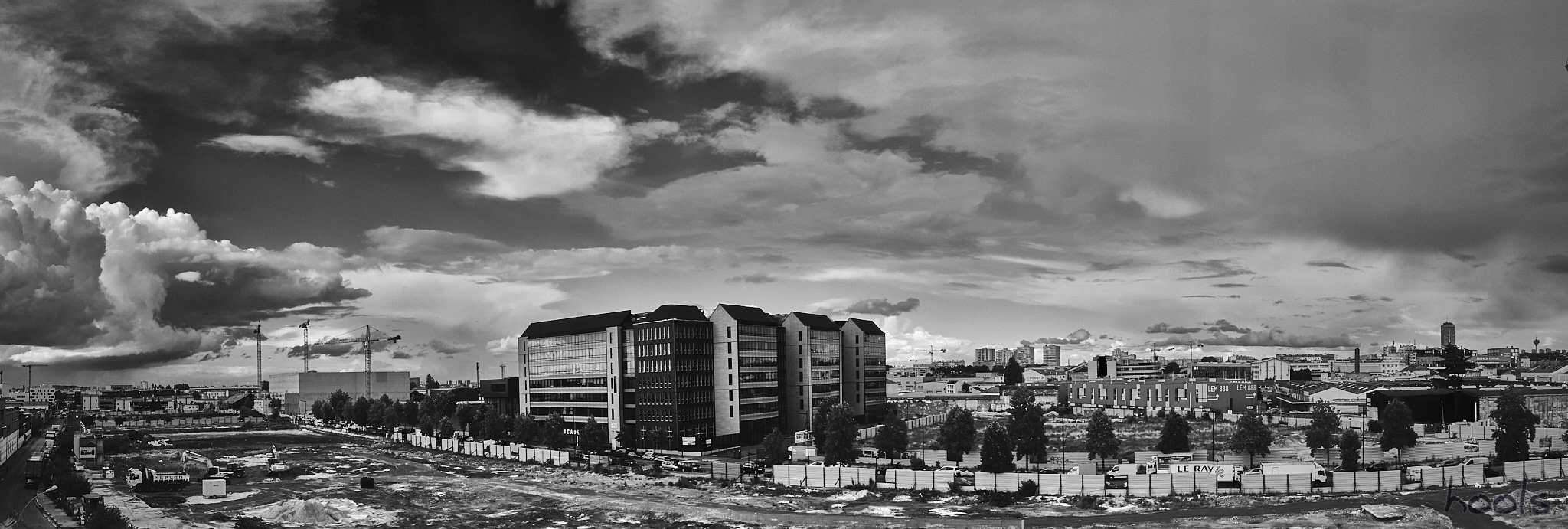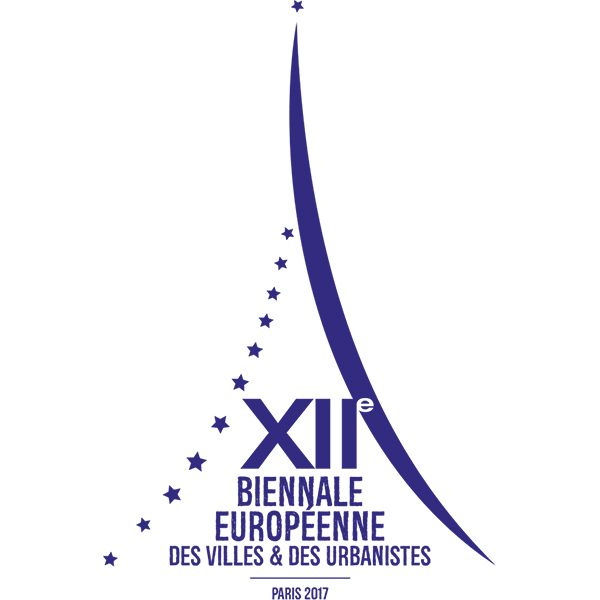Biennial XII - Paris 2017
XII. París, France: 29 June 2017
Cities, Olympic and Paralympic Games and other Mega Events
For the third time France hosted the Biennial. The title Cities, Olympic and Paralympic Games and other Mega Events included an important "key": How to learn from experience. This Biennial was about Mega Events and its impact on the cities and how to make a good urban strategy. Ajoint subject was about the importance of learning from each other.
The work of the Biennale was enhanced by the feedback of the European cities that hosted the Olympic Games: Barcelona 1992 / Athens 2004 / London 2012 / Munich 1972 / Albertville 1992 / Turin 2006 / Tokyo 2020. And also cities who were contenders like Lille, Stockholm, Rome, Budapest and Hamburg. Particularly, The XII Biennial analyzed urban legacy , benefits, challenges and risks for the territories and their populations over the long term, under six sub-themes:
a) Urbanity;
b) Social cohesion;
c) Governance;
d) Values, identity, image;
e) Environmental awareness;
f) Economic competitiveness according with the following general approach.
Further information: http://biennale-europeenne-paris2017.fr/en/capitalization/
http://www.ectp-ceu.eu/index.php/en/biennal-31
12th Biennial of
European Towns and Town Planners
Paris 29 June 2017
12th Biennial of
European Towns and Town Planners
Paris 29 June 2017
MERCI !
The Biennial was a very good success and we wish to warmly thank all participants & partners.
More news soon !

Most presentations can be viewed here :
Cities in Evolution - The Power of World Events - An Example of Work in Progress on the City of TOKIO
Alfonso VEGARA, President of the METROPOLI Foundation
The organization of the games creates a shock and engages the urban regeneration towards a new long-term vision of the prosperity of the city and its inhabitants.
How did the cities of Barcelona 1992 and Munich 1972 see 25-35 years after the realization of this vision and the evolution of its heritage?
Animated by Brigitte Bariol, General Delegate of FNAU with :
Joaquim Clusa (Barcelone)
Johanes Dragomir (Munich), President of SRL
Intervention of the students of ESSEC
Cooperation between the various municipalities and between companies, local government and civil society is obviously essential when receiving the planet.
How has the preparation of the Games and world events had a lasting impact on the territorial cohesion of the regions that have welcomed them? Return of experiences from London Lille and Hamburg
Animated by Emmanuel de la Masselière with :
Richard Blyth, (Londres)
Mathias Kuhlmann, (Hambourg)
Thierry Baert, (Lille)
How do the Games and world events engage cities and regions in the energy transition and taking into account climate change and environmental protection at the heart of public spaces?
Experience feedback from Turin, Athens and Lillehammer
Animated by Stephen Wilkinson, President of RTPI a with :
François Tamisier, Architecte Urbaniste en chef d’ADP (Paris)
Elias Beriatos (Athènes) délégué ECTP-CEU
Jacques Perret (Albertville)
Conclusions of the feedback and prospects on the reception of the world events for the benefit of the populations
Elected officials of « Plaine Commune »
Patricia Pelloux, APUR, Responsible for Sites et infrastructures at the Paris Bid Committee for the 2024 Olympic Games
Martin Citarella - Charge d’études aménagement du territoire et conseiller technique du comité départemental olympique et sportif 93.
Luc Emile Bouche Florin, Honorary President of the ECTP-CEU
Joris Scheers, President du ECTP-CEU
http://biennale-europeenne-paris2017.fr/en/capitalization/
Cities and Olympic AND PARALYMPIC Games, feedback and future
Thematics:
Quality of urban integration of the Olympic and Paralympic Games
Social Cohesion
Governance
Identity, Value for culture
Environmental care of olympic in the cities
Economic competitively for the cities
Urban experience of European cities with Olympic AND PARALYMPIC Games:
Barcelona 1992
Athens 2004
Sochi 2014
London 2012
Munich 1972
Albertville 1992
Lillehamer 1994
Turin 2006
Tokyo 2020
Candidate Cities who were contenders like Lille, Istanbul,Stockholm, Rome, Budapest, Hamburg
Programme:
29 JUNE 2017 – PARIS & PLAINE COMMUNE
Maison des Sciences de l’Homme (House of Human Sciences) – Metro Front Populaire
Hôtel de Ville de Paris (Paris City Hall) – Metro Hôtel de Ville
CITIES AND THE OLYMPIC AND PARALYMPIC GAMES, FEEDBACK AND PROSPECTIVES,
How can World Events benefit the population hosting them?
The European Council of Spatial Planners is organising the XII European Biennial of Towns and Town Planners with the city of Paris and Plaine Commune.
Expected audience at the XIIth European Biennial of Towns and Town Planners
300 people; town, urban & spatial planners, elected officials, development technicians, representatives of associations and companies, 25% of whom came from other European countries.
PROGRAM OF THE XII BIENNIAL OF EUROPEAN TOWNS AND TOWN PLANNERS
Maison des Sciences de l’Homme (House of Human Sciences) – Metro Front Populaire
Large Amphitheater of the Maison des Sciences de l’Homme (House of Human Sciences) (MSH) of St Denis.
20 Avenue George Sand, 93210 Saint-Denis
| 09:00 am - 09:30 am | Welcome and Introduction - presentation of the day, the preliminary work and the involvement of urban planners in the sustainable development of cities and territories. | Joris Scheers, President of the ECTP-CEU Bruno Feracci, SFU President Jean Pierre Duport, Préfet(H) former Director of Town Planning |
| 09:30 am - 10:00 am | Welcome to Plaine Commune and Paris Hosting a planetary event in the City: What do local residents expect and how can elected officials meet these expectations? |
Patrick BRAOUEZEC, President of Plaine Commune, Jean-Louis MISSIKA, Deputy for urban planning in the city of Paris |
| 10:00 am - 11:00 am | Cities in Evolution - The Power of World Events - An Example of Work in Progress on the City of TOKIO. | Alfonso VEGARA, President of the METROPOLI Foundation |
| 11:00 am - 11:30 am | Coffee Break - in the Panoramic Room - exhibition | |
| 11:30 am - 01:00 pm | The organization of the games creates a shock and engages the urban regeneration towards a new long-term vision of the prosperity of the city and its inhabitants. How did the cities of Barcelona 1992 and Munich 1972 see 25-35 years after the realization of this vision and the evolution of its heritage? |
Hosted by Dominique Alba, Director of APUR Joaquim Clusa (Barcelona) Johanes Dragomir (Munich) Laura Campeny (Liège) Intervention of the students of ESSEC |
| 01:00 pm - 02:00 pm | Lunch - in the Panoramic Room - exhibition | |
| 02:00 pm - 03:00 pm | Cooperation between the various municipalities and between companies, local government and civil society is obviously essential when receiving the planet. How has the preparation of the Games and world events had a lasting impact on the territorial cohesion of the regions that have welcomed them? Return of experiences from London Lille and Hamburg |
Powered by Emmanuel de la Masselière With Janice Morphett(London) Mathias Kuhlmann (Hamburg) Thierry Baert (Lille) |
| 03:00 pm - 04:00 pm | How do the Games and world events engage cities and regions in the energy transition and taking into account climate change and environmental protection at the heart of public spaces? Experience feedback from Turin, Athens and Lillehammer |
Hosted by Stephen Wilkinson, Chair of the RTPI with Claire Gervais (Paris) Pedro Ardila (Oslo) Mercedes Bresso (MEP and Turin) Elias Beriatos (Athens) |
| 04:00 pm - 05:00 pm | Conclusions of the feedback and prospects on the reception of the world events for the benefit of the populations | ADA COLAU Mayor of Barcelona (to be confirmed) ANNE HIDALGO, Mayor of Paris (to be confirmed) |
| 05:00 pm - 06:30 pm | Presentation of young urban planners in the panoramic room in the heart of the exhibition: Pitch 5 '* 12: Ignacio PEMAN | |
| 07:30 pm - 10:30 pm | Dinner at the Salle des fêtes at the Hôtel de Ville in Paris | With Irina Bokova Director-General of UNESCO (to be confirmed) |
The work of the Biennale will develop the following questions:
1- Hosting a planetary event in the City : what are the inhabitants expecting and how elected officials can answers those expectations?
2- Mutating cities : How to use the momentum generated by hosting worldwide events ?
3- Hosting the Olympic games create a shock and starts a urban renewal aimed at a new long term vision of prosperity for the city and its inhabitants
4- Co-operation between the various municipalities, private companies, local government and civil society is obviously essential when receiving the planet
5- How does the preparation of the Olympics and other world events creates a lasting impact on the territorial cohesion of the regions who hosted them ?
6- How do global games and events engage cities and regions in the energy transition, taking climate change into account and protecting the environment at the heart of public spaces?
An exhibition will take place in the panoramic room of the the Maison des Sciences de l’Homme (House of Human Sciences):
Posters of the urban innovations proposed for the games - young urban planners
European Urban and Regional Planning Awards
Presentation of the partners of the Biennale and their latest innovations
